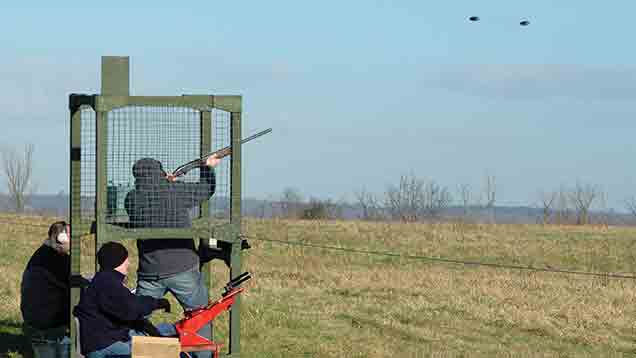Business clinic: Should clay shoot be part of farming business?
 ©Sonny Meddle/Rex Shutterstock
©Sonny Meddle/Rex Shutterstock Whether you have a legal, tax, insurance, management or land issue, Farmers Weekly’s Business Clinic experts can help. Here, Lisa Oliver from Hazlewoods looks at the options for setting up a new business when a farmer launches a clay pigeon shoot.
Q I am thinking of setting up a clay pigeon shooting ground on the farm. Should I include this in the current VAT-registered farming partnership, or would it be better to set it up as a separate entity altogether?
A On-farm diversification can boost income and increase profitability, but it is important that the correct structure is chosen from the outset.
Include in farming business
The simplest approach is to include the clay shoot in the current farming business. The main advantage of this is simplicity, as all income and expenses will go through the existing farming partnership under one VAT registration and one set of accounts.
Once each partner’s income exceeds £42,385, higher-rate tax will be payable. If the inclusion of the shooting enterprise means income is likely to exceed this level, then a partnership gives the flexibility to include other family members as partners to keep the overall tax bill down.
See also: Tips for farm diversifications with a difference
The cost of plant and machinery for the shooting ground will qualify for capital allowances.
The current Annual Investment Allowance (AIA) may be large enough to ensure 100% tax relief on all equipment purchases. However, timing is crucial – the AIA falls from £500,000 to £200,000/year on 1 January 2016 and the transition rules are quite harsh.
As the farming business is VAT registered, all input VAT on set-up and running costs will be recoverable.
The main disadvantage of this structure is that, regardless of the shooting ground turnover, output VAT will need to be charged at 20% on the shooting fees.
Customers who are private individuals will not be able to recover this VAT, so this is something you need to consider in setting your prices.
Set up as a separate entity
If the initial turnover of the shooting ground is likely to be below the £82,000/year compulsory VAT registration threshold, it may be beneficial to set up as a separate trading entity, as output VAT will not have to be charged on the shooting fees.
The separate entity could be a sole trader, partnership or a limited company, depending on the taxable income of the partners, the expected profit of the clay shoot and the amount of capital tied up in the business.
In some cases an additional AIA may be available for the new entity, which may be advantageous.
A separate entity would also provide the opportunity for other family members or third parties to be involved in the business.
If all farm partners are higher-rate taxpayers and profits from the shooting ground are likely to be reinvested rather than being drawn out, then trading as a limited company would be a favourable option. All profits would be taxable at 20% and there would be no national insurance costs.
A further advantage of a limited company is that it provides liability protection for the owners, which may be highly desirable for a shooting business.
The disadvantages of setting up a separate, non-VAT-registered entity include extra administration (separate records and accounts) and the need for a different bank account. In addition, the input VAT would not be recoverable on the initial set-up costs and running costs.
In summary, if the turnover of the clay shoot is expected to be below £82,000 and set up costs are relatively low, then a separate entity would be cost-effective in VAT terms. Trading as a limited company may well be the most attractive option.
Do you have a question for the panel?
Outline your legal, tax, finance, insurance or farm management question in no more than 350 words and Farmers Weekly will put it to a member of the panel. Please give as much information as possible.
Send your enquiry to Business Clinic, Farmers Weekly, RBI, Quadrant House, The Quadrant, Sutton, Surrey SM2 5AS.
You can also email your question to fwbusinessclinic@rbi.co.uk or post it on the Farmers Weekly website.


